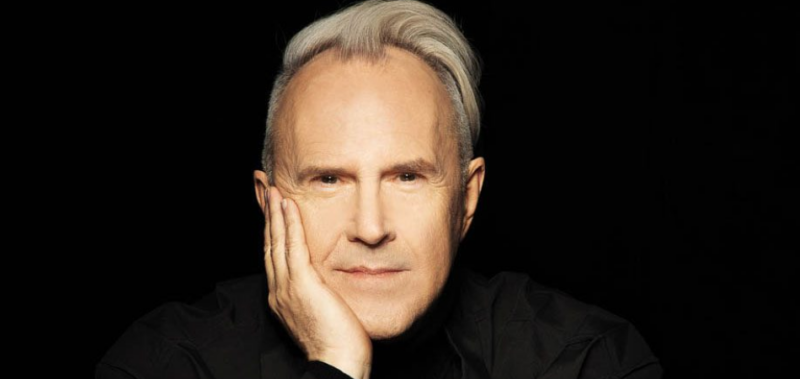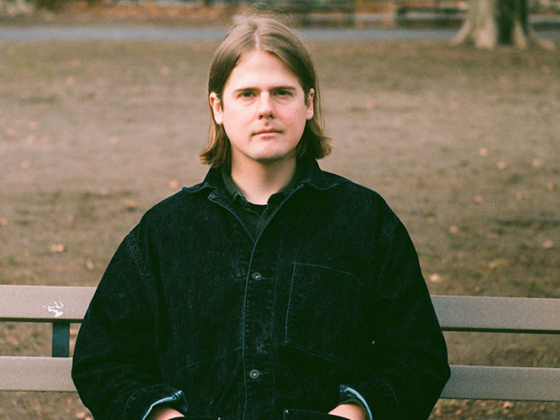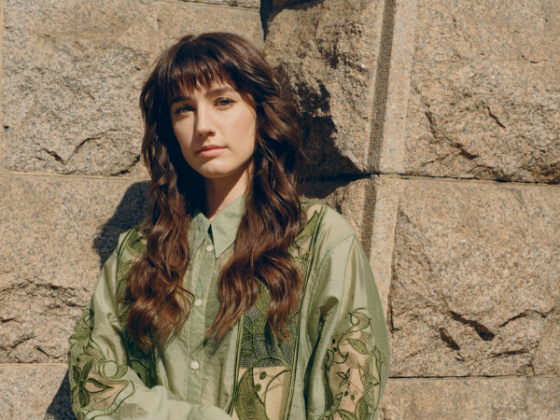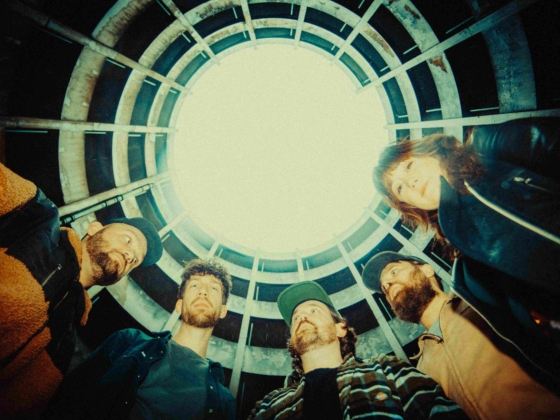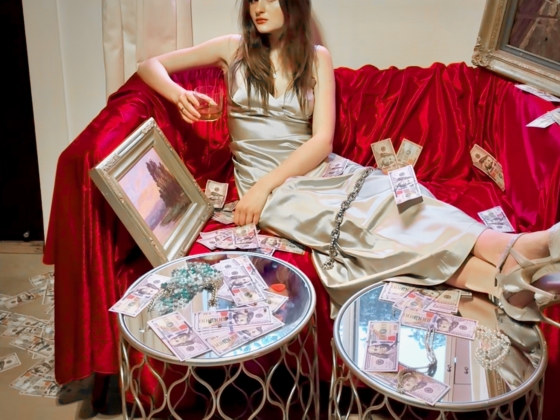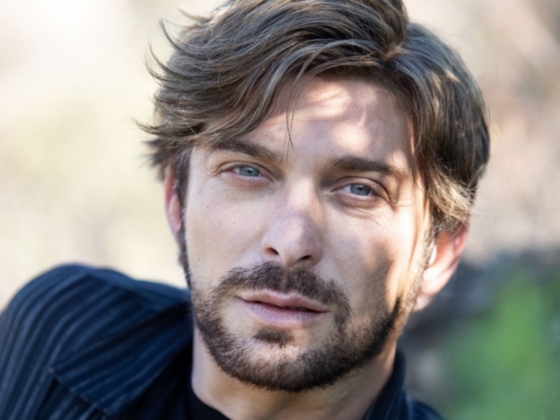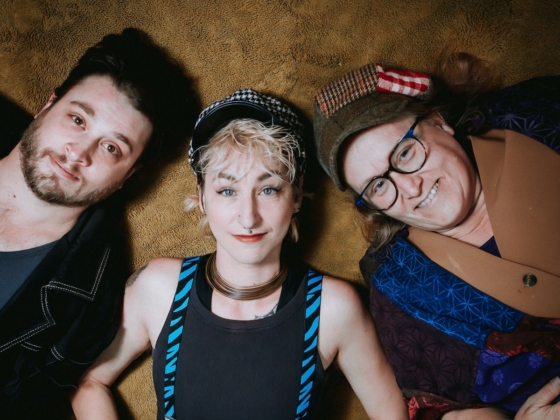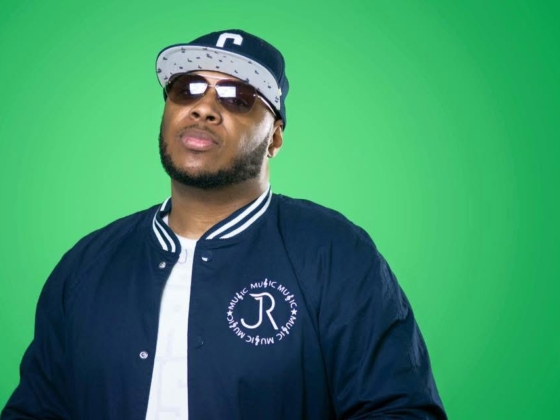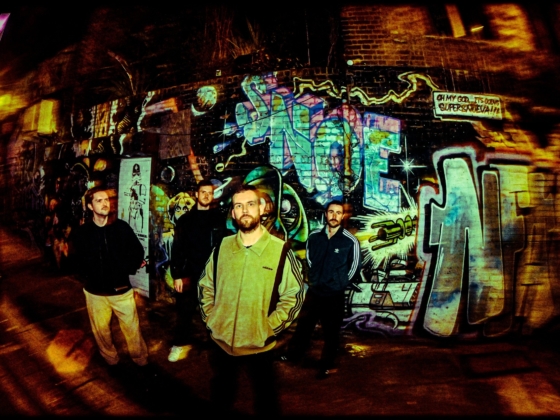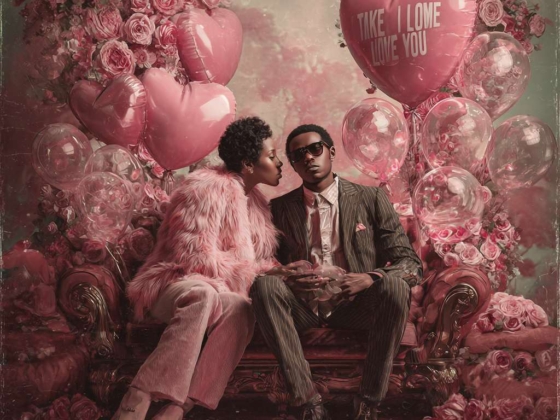New Wave artist Howard Jones is releasing a new album – and it might not be what you’re expecting.
Best known for his work in the 1980s – which includes “What Is Love?” the first ever hit song composed entirely on the Yamaha DX-7 synthesiser – Howard Jones made a name for himself with his one-man shows decked out in shell suits, big hair, and being accompanied on stage by a mime.
Now, forty years on, Howard Jones has announced his new album Piano Composed, his third featuring just him at the piano.
On a rainy Tuesday earlier this month, Howard Jones chatted to EARMILK about how he put together his new album, his most recent tour, and some odd performances from his days as the King of Synths – including his iconic Live Aid performance.
EARMILK: The new album is completely gorgeous, can you tell us a bit about your inspirations for Piano Composed?
I’d been working with my friend BT [American composer and audio engineer Brian Wayne Transeau] and we’d been doing some electronic tracks together, but ended up becoming really good friends. He suggested I start doing a piano piece every day, just get up early and go to the piano and record whatever comes out.
So that kind of inspired me during the Covid lockdowns, when there was plenty of time to just work at home and not go anywhere. So I started doing that and realised I’d come up with quite a few pieces. I started off working with some really high-quality samples, but then I got this new piano – a Steinway Spirio – which enabled me to play pieces into the piano and have the piano itself play them back. It’s sort of like a modern-day player piano.
After that, I started playing the pieces back through the piano and started editing them, adding extra octaves and changing the tempo. So I ended up combining my two lifelong passions, which are playing piano and programming. I started playing piano when I was seven and started programming in my early 20s, so it was the perfect storm for me to be able to control the piano pieces that way.
EARMILK: It’s obviously quite different from your 80s synth stuff, but I was listening to the new album and thought one track particularly had some Erik Satie elements to it. Quite lyrical.
Yeah, that’s right. When I was at music college, I always gravitated toward playing the French Impressionists—Satie and Debussy, and so on. I’ve just always been into pleasant tunes, really. You have these amazing film composers, who obviously have great talents when it comes to arranging and have amazing technical abilities, but as a listener, you always remember the best tunes. I really like John Williams, particularly for that.
That’s what I’ve brought to these tracks. I tried to be disciplined, ensuring that if I had a good tune, I developed it structurally, instead of purely improvising. I think my first two piano albums were more like that, very improvised – but hopefully this one comes across a bit more disciplined, but still feels like it’s being played for the first time.
EARMILK: It definitely has a good mix of the two; it’s improvisational but fine-tuned.
I was really aware that piano players might want to be able to play these tunes themselves, so my friend Pete [Noke, Howard Jones’ roommate at music college] is a concert pianist and has transcribed them for me. So if you can read music, you’ll be able to play them at home. I’m so interested to see how other people will interpret them – when Pete plays them, they become something totally different. I’m excited to see what people do with it.
EARMILK: The title tracks on the new album are all quite hopeful – was that a deliberate decision?
It was partly because of Covid, I wanted to make the titles sort of statement. But really, apart from “It’s Great To See You Smile Again”, I don’t really think they have a lot to do with what the music is actually about. So really I just went for short, hopeful statements.
EARMILK: What’s the main difference between working on your synth stuff versus working with the piano compositions?
They’re kind of emerging more together, now. Before, the piano was always purely a performance instrument that meant you had to capture a specific performance, but now I’ve got the new Steinway I can play stuff in and then mess with it, and correct things. So it’s getting quite similar to programming on a synth.
But still, for me because I’ve been playing the piano since I was so young, I don’t really have to think about it, or about where my hands are. It’s wonderful, but it’s taken decades of playing every day. It’s a very pure emotion for me – I can go to the piano, play, and put the piano into record. [Laughs] Isn’t that weird to say? But it’s nice to listen back and think, oh I like this bit, don’t like that, I want to change this note, the timing here doesn’t work, and so on. So I can do it completely fearlessly, without losing any ideas because the piano remembers it for me.
I find myself playing piano a lot more than synths at the moment, but it’s just a really different way of thinking. With synths, you really have to intellectualise the music and put it together as you go, and make decisions every moment. But with the piano it’s like, it just all comes out. I was saying to my wife Jan I should probably do one of these piano albums every year, because I enjoy them so much and I’m so comfortable doing them.
EARMILK: What’s your favourite track on the new album?
I think the most immediate one is “Finding the Silver Lining” – I think it’s probably the easiest one to play. But also, “Cherish Life” is another one of my favourites, and “It’s Great To See You Smile Again”, which is a kind of tribute to Scott Joplin. It’s quite different to all the other pieces.
EARMILK: What are your plans for when the album comes out?
I’m having a little launch of the album; Steinway has invited me to come and play the new tracks to a small invited audience, which means I have to learn to play my own pieces [laughs]. I’m trying to play exactly what Pete’s transcribed, but I can’t resist adding more and improvising around that.
EARMILK: Are there any other tour plans?
I don’t think I’ll do anything with the piano album other than the Steinway event, but maybe I will do some concerts if it gets a big response. I am planning on touring with my band later this year, in Europe and the UK and in the States, probably from September. So I’m really having a summer off to work on another new album.
EARMILK: Another piano one?
No, I don’t think so. I’m not quite sure what, musically, it will end up like yet. I’ve just got to get down and do it, but I’m just not sure how yet. My old friend Rupert Hine – now sadly passed away – did my first two albums. He always said, ‘if you haven’t got anything to say then don’t to it’. He really felt you had to wait until you have something to say, and he was so right. If you wait then the music will flow, and you’ll have a clear idea of something you want or need to say.
EARMILK: I’m wondering – when you come to perform the new tracks, do you think it’ll be very different to the way you perform the pop stuff? You used to do a lot of talking when you were performing because you had to program the synths.
It’s funny, what I’m realising is that’s actually where I’m most comfortable. When I have to improvise. So if I’ve got a plot but then can make the performance unique, that’s so exciting and there’s an element of risk. If I play a wrong note, that can become the basis of something new – I suppose that’s much more of a jazz aesthetic, isn’t it? Nothing is ever wrong, it’s just what you make of it when it arrives. So I’ll have the music in front of me but I’ll probably end up taking it to some new place.
EARMILK: Was it a worry for you that your piano compositions would put off people who only know you for your pop stuff? Like, ‘where’s the old Howard Jones?’
That’s a good way to put it. My wonderful longtime fans, they’ve really come to expect all kinds of things from me. They love me doing the synth albums and where it all started, but they’re quite prepared to run with me if I do something like this.
It kind of goes back to that performance I did at Live Aid. I played “Hide and Seek” at the piano and everyone thought, ‘oh my god what’s the synth guy doing at the piano? Doesn’t he normally just hit switches?’ But I think from that moment on people realised they could expect a few things from me.
EARMILK: Speaking of Hide and Seek – what’s your favourite song you’ve ever done? Or are they all kind of your beloved children?
I don’t think I’ve ever put anything out that I don’t really believe in, but if I did absolutely have to choose I do think it would be “Hide and Seek”, actually. Partly because of the Live Aid association, but also just because of what the song is about. It’s about hope, and finding it in everything, and that has loads of interpretations for everyone.
I actually really found that on the most recent tour. It’s so concerning the world that we’re living in at the moment. I felt this incredible anxiety for people, and even then they were turning up to have a great time and celebrate and sing, but you could tell they needed it now more than ever. I’d talk about it at the end of shows. We’re going through trauma at the moment, so how do we deal with it? What do we do to counteract it? I’d say, for me, it was about doubling down on being kind to people, being respectful of differences. If everyone does that, it’ll form a movement of counteracting all the awfulness going on. It sounds like a small thing, but actually it takes a lot of courage and people have to dig deep to do it.
I think, especially as artists, we have to wonder – what do we do to have a say in all this? The most powerful thing is how we behave to each other, and how we care about each other, and how that’s all connected. So if somebody does something on the other side of the planet, we’re all going to be affected. We’re really all so connected and nobody is separate from anything going on.
EARMILK: How was the tour in general?
It was brilliant, one of the best tours in recent memory for me. It was amazing being out there with ABC, but I also had a completely new band aside from Nick Beggs [former Kajagoogoo bassist]. But everyone else was brand new, so there was this incredible energy.
It was kind of interesting to tour in February, mostly because it was really cold. I remember we were in Omaha and we came out of the venue after the gig to go to the bus and it was -29 degrees [celsius]. It was like – literally our faces froze in about five minutes. Real extremes of weather, especially since right before we were in Orange County, where it was lovely and warm.
EARMILK: What is it like working with other people for you? Obviously, you’ve worked with Nick Beggs a lot before, but you’ve in the past brought out Nik Kershaw, and you performed with Daryl Hall on his show.
If I’m completely honest, my favourite place is when I’m kind of in control of the overall picture. Which doesn’t mean other people aren’t included, but the choice of people you have around you matters. I’m more comfortable when I can do, when I can do that, when I can really make it exactly how I hear it in my head. As you know, I started out as a one-man band, and that was the more difficult thing because you have nobody to bounce ideas of your energy off of, and it gets really lonely backstage, especially when the gig is over. So you have total control but you get lonely, and it means that I’ll always be wanting to work with other people, but I do prefer to have the last say in how the overall sound goes. [Laughs] It makes me sound kind of authoritarian.
But I always try to do it in the nicest way possible, and make sure the people I’m working with are comfortable with it. Especially someone like Nick Beggs, who is such a wonderful personality and friend, he has such a great energy on stage.
It has been great when I’ve sat in a room and written songs with other people, that’s one of the most exciting things. I’ve done some songwriting retreats and written like seven or eight, ten songs in a week, and then recorded them, which was a lot of fun.
But I think I know myself quite well after all this time. I’m not the kind of person who tends to dominate the conversation in a social setting. I really like to listen to other people and hear what they’ve got to say – but when it comes to music, that’s my voice. If you want to hear what I’m about, you won’t get it from just meeting me but it will be in the music. I really cherish that area of my life because that’s the part I can really have everything exactly how I want it.
EARMILK: Is there anything you’ve always wanted someone to ask you in an interview that hasn’t come up?
Oh, god. I think somebody has asked me pretty much everything during my career.
EARMILK: I do have a couple of quite niche questions for you, actually.
[Laughs] I love that, go on.
EARMILK: So there’s a performance you did on Top of the Pops from the mid-80’s where you’re performing at Bristol Temple Meads train station, ON Platform 4. Do you have any memory of this?
I remember it really well, actually. It was so unusual. It was as mad as it looked, but when you do things that are going out live it is very exciting because anything can go wrong, or you can fall over. I think I was miming in that performance. I used to have this nervous habit where I’d chew the inside of my mouth, which looked like I was chewing gum. But I was definitely nervous during that performance. I’d done TOTP before completely live, going out as a live performance, and that’s a good one because there was a smoke machine and the guy who was operating it got a bit over-enthusiastic and there were moments where you just couldn’t see me through the smoke! So that was live, but I think the best way to do Top of the Pops in those days was to mime because it was done so quickly.
But with the Temple Meads performance, it was a lot of fun because there was loads of fans on the platform, and that gave it a real vibe and it was so exciting. It was great.
EARMILK: My other niche question is about something I’ve struggled to find an answer for online – on The Sims 2, there’s a Simlish cover of “Things Can Only Get Better”. How did that come about and what was it like doing a version of your song in what is essentially gibberish?
Well that’s actually quite a story! The person who asked me to do is a guy called Steve Schnur, who is now the head of music for EA, pretty big job. But he used to go round America, which me when I was promoting singles for years, so we’re good friends from a long way back and we’ve been on holiday together and all sorts.
So Steve asked me to do a song in this crazy Simlish language, and there was quite a lot of effort involved. But also my youngest son was really into the Sims games and used to play it for hours, and it was actually quite fun doing the song like that. I might not have done it if Steve hadn’t been the one asking me, because he’s such a good friend I would do anything for him. But I’m glad it’s out there.
I guess these days if you wanted to do something like that you could use AI, and have it sing in various languages for you. But I know there’s a lot of terror in the artistic community about AI, which I totally agree with, especially when it comes to people using our work to train models/ I really don’t agree with scraping artists’ work like that, especially not without someone’s permission or without them benefitting from it in any way. That’s just not right.
Ideally, AI could find ways to help with music, considering, consulting, honoring, and revering artists. Otherwise we don’t have anybody making new music, or we’ll get to where it’s a tiny percentage of people being able to make music at all. We want people to be able to make great music at home and have huge hits on TikTok/ But it should be possible to have that and not have it be artificially generated, because it will stop creative minds from making art in the future.
Howard Jones’ new album Piano Composed is out on May 23rd on CD and vinyl.

